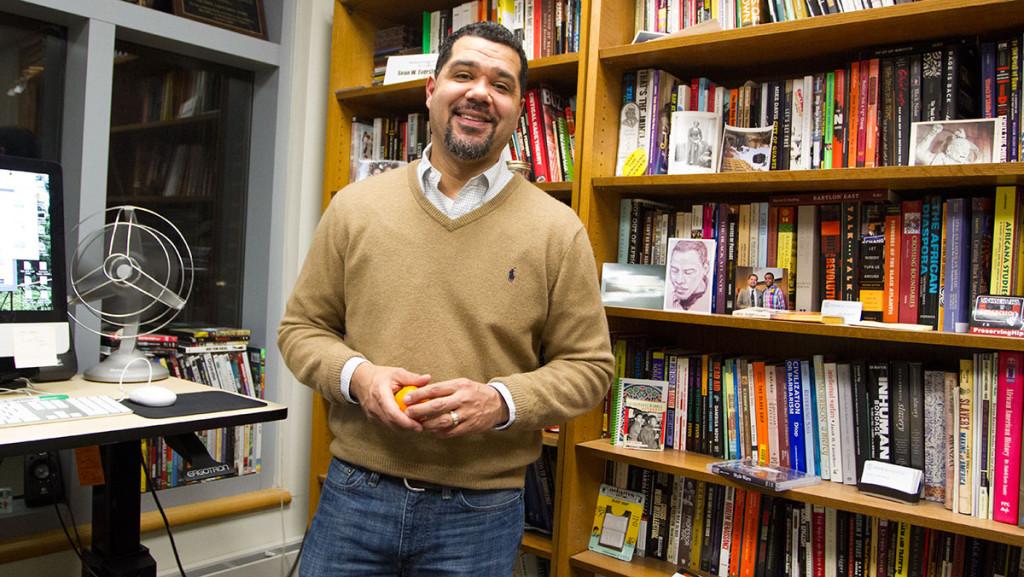Sean Eversley Bradwell, director of programs and outreach in the Office of Student Affairs and Campus Life, helped create a feature film titled “Civil Warriors,” released in 2016. The film follows real black families who lived in the Ithaca area and their family members who fought in the Civil War. The film is told through spoken word and was specifically adapted so it can be used in social studies and history classes across America. It was presented at a screening at the Southside Community Center Feb. 24.
Contributing Writer Vivian Goldstein spoke with Bradwell about the making of “Civil Warriors,” how the stories of the families followed in the film are still important in today’s modern context and what it means to fight for a government that will not fight for you.
This interview has been edited for length and clarity.
Vivian Goldstein: In your own words, what would you say the film is about?
Sean Eversley Bradwell: The film tries to explore local history — in particular, the real, lived experiences of people who enlisted in the Civil War. It is not just about the 26 black men, but also about their families … about what does it also means to have people in your family who also enlist in war.
VG: How did you get involved with the film?
SEB: I am a hobby–local historian, and I have been doing some work with the History Center for quite some time, in particular trying to explore the experience of black Americans in Ithaca. Through my work at the History Center, I happened to hear about … a movie that was being done based on the 26 black men who enlisted, and contacted Photosynthesis Productions, who are producing and directing the film. … It was collectively decided that maybe the film needed a narrator and that I could play that role, and so I was fortunate enough to help do some of the writing and the narration.
VG: Why did you feel that these stories were important to tell?
SEB: I feel most “uncovered stories” are important to tell. If we don’t know about these stories, we don’t think they exist. If we don’t think they exist, then we don’t think we exist. … What I’m intrigued by is trying to find ways in which people understand that we come from people. We come from experiences. We come from histories. And as I tell students, the truth is always in the details, so knowing some of the details about some of these experiences is extremely important. … I’m currently working on a project that explores the men and women who enlisted in World War I, and there seems to be a theme here that [I’m] trying to understand: What does it mean to participate and fight for democracy even when that democracy doesn’t support your own needs, wishes and rights?
VG: Did you play a part in making this accessible curriculum and the decision that went along with this?
SEB: I played a small role. Bronwen Exter is the person who was the lead driver of the curriculum. I was more of an adviser or consultant and simply giving some feedback or, every now and then, a piece of history that could or should be added. But for the most part, the curriculum and the film is a community effort. Local Ithacans helped produce the score that you will hear — the music you will hear. Jacque Washington, who is a counselor in our CAPS program here, is one of our lead actors who is in the production. Local Ithaca folks helped create the trailer and the website that helped support the film. I had a really small role to play in this fairly large community effort.
VG: What do you see as the intersection between the issues dealt with in this movie and current issues surrounding race?
SEB: We’re talking about a time when slavery was legal … and talking about people’s right to voting, to quality education, to healthcare. I think there’s a tremendous overlay, not just around black folks but among many communities who find themselves disenfranchised. And so, unfortunately, the story stays relevant. Fortunately, hopefully, we can learn some things to help change that in the future.
VG: What’s something you learned in this process to help facilitate change in the future?
SEB: What I learned is, again, the details of history and to pay more attention to families. While a good deal of attention is paid to the men who participated, women were equally as impacted and affected as strong of leaders in this movement. What does it mean to have one’s father go off to war with the possibility of not coming back and thinking about the reality of that sort of experience? And what does it mean for people to come back from trauma of these sorts of violence — men, women, children? And how does one sort of reintegrate themselves back in society?
VG: How do you think that this movie will impact the college community, especially since it is geared towards students?
SEB: One, I hope the IC community sees it. I hope there’s some screenings and some viewings, and people can learn from it. … I hope what it does is spark some people’s interest in recovering more history. If it does that then it has, without question, done its job.














